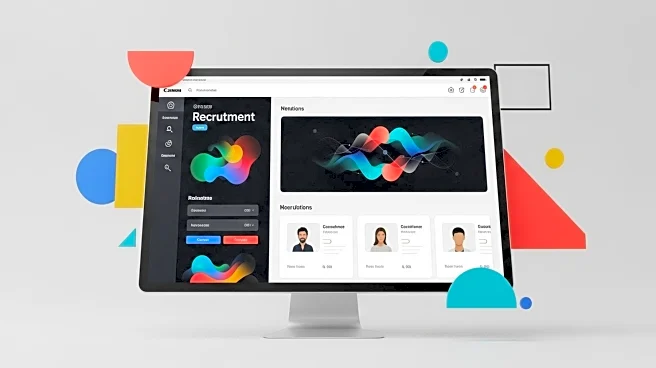What is the story about?
What's Happening?
Gen Z is reshaping how employers engage with potential hires, prioritizing transparency and authenticity over traditional recruitment methods. According to a report by the Association of the British Pharmaceutical Industry, Gen Z evaluates companies based on their social media presence, preferring platforms like TikTok and Instagram over traditional career pages. This generation values genuine engagement and inclusivity, often overlooking companies that fail to demonstrate these qualities. Employers are encouraged to adapt by empowering employee storytelling and diversifying content formats to attract Gen Z talent.
Why It's Important?
The shift in Gen Z's expectations is significant for U.S. industries as it challenges traditional recruitment strategies. Companies that fail to adapt may miss out on attracting young talent, impacting their workforce diversity and innovation potential. This generational change emphasizes the need for businesses to build authentic relationships with potential employees, influencing public policy on employment practices and corporate transparency. Organizations that successfully engage Gen Z can benefit from a more dynamic and inclusive workforce, while those that don't may face talent shortages.
What's Next?
Employers are likely to increase their focus on social media strategies to align with Gen Z's preferences. This may involve creating more authentic content and engaging directly with potential hires through platforms they frequent. Companies might also reassess their diversity and inclusion initiatives to ensure they are genuine and impactful. As Gen Z continues to enter the workforce, businesses will need to continuously adapt their recruitment and branding strategies to meet evolving expectations.
Beyond the Headlines
The emphasis on transparency and authenticity could lead to broader cultural shifts within organizations, promoting more open communication and employee empowerment. This trend may also influence how companies approach corporate social responsibility, as Gen Z's values push for more ethical business practices. Long-term, this could result in a more socially conscious corporate landscape.














